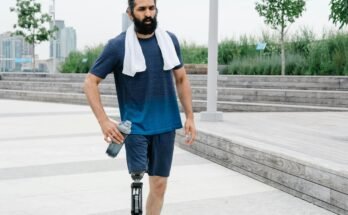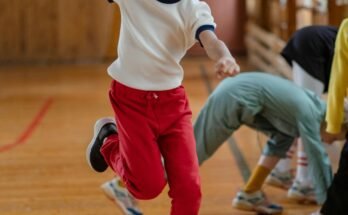When it comes to reaching your fitness objectives—be it gaining muscle, losing weight, boosting endurance, or just remaining healthy—nutrition is equally essential as your exercise, if not more so. What you consume has a direct effect on your energy, recovery, and overall performance. Let’s look at how nutrition affects your fitness journey and how you can feed your body properly.
1.Food is Fuel: Energy for Workouts
Your muscles need energy for movement, lifting, running, or even stretching. That energy comes from food you eat, especially carbs.
Carbohydrates are broken down into glucose that your muscles burn as fuel during exercise.
When you don’t have enough carbs, you feel tired, sluggish, or weak during exercise.
Tip: Use complex carbs like oats, brown rice, sweet potatoes, and whole grains to provide lasting energy.
2.Protein = Muscle Growth and Repair
Every time you exercise—especially strength training—you make tiny tears in muscle fibers. To rebuild and become stronger, your body needs protein.
Protein provides you with amino acids, the building blocks of muscle.
It also delays soreness and speeds up recovery.
Tip: Opt for lean protein choices like chicken, fish, eggs, Greek yogurt, tofu, or legumes. Try to include protein in every meal.
3.Fats: Don’t Fear Them
Healthy fats play a key role in hormone production, joint lubrication, and consistent energy.
They’re required for the proper absorption of vitamins A, D, E, and K.
Healthy fats are good for brain function and leaving you feeling satisfied for longer.
Tip: Add healthy fats from avocado, nuts, seeds, olive oil, and fatty fish like salmon.
4.Hydration: The Forgotten Key
Water is the underappreciated nutrient, but it’s the secret to physical performance and recovery. Dehydration can lead to:
Muscle cramps
Dizziness
Slower recovery
Tip: Drink water throughout the day, especially before, during, and after exercise. Electrolyte drinks may be helpful during intense training.
5.Timing Matters: Pre & Post Workout Nutrition
What and when you eat can influence how well you perform and recover.
Pre-workout: Eat a balanced meal with carbs and a small amount of protein 1–3 hours before exercise.
Post-workout: Re-fuel within an hour with protein and carbs to aid recovery and muscle repair.
Example: A banana with peanut butter, or an oat protein smoothie.
6.Nutrition for Different Goals
Goal\tNutritional Priority
Muscle Gain\tCaloric surplus, lots of protein, multiple meals daily
Fat Loss\tCaloric restriction, lean protein, plenty of fiber-rich foods
Endurance\tCarbohydrates, water, eating frequently
General Health\tA balanced diet that is varied and portion-controlled
7.Avoiding Common Mistakes
Missing meals or supplementation only
Rigid diets excluding large food categories
Not eating enough to sustain workout intensity
Too much processed food and refined sugar
Conclusion
You can’t work out harder than you eat poorly. Exercise and diet are a match made in heaven—your nutrition dictates your fate. If you’re pumping weights at the gym, running marathons, or just in shape, see to it your plate reflects your objective.
Eat wisely, and your fitness resolutions will follow.



